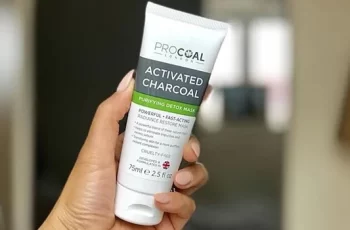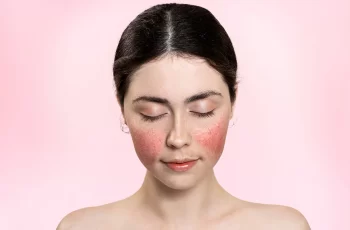
What Are The Barriers to Skin Health?
What are your biggest skin concerns and skin issues? We call skin concerns and skin issues “barriers to skin health”.
There are 4 main skin concerns, or barriers to healthy skin, that need to be addressed when choosing skin care products to target your skin concerns.
The first step to healthy skin is identifying your skin’s issues and diagnosing your Baumann Skin Type. Your Baumann Skin type takes into account the 4 most important skin concerns and skin issues which we call barriers to skin health.
Once you know your skin type, you can follow our tips for healthy skin based on your skin type. Your skin type will determine which skin care products will make your skin healthier.
When choosing the best skin care products and others ways to make your skin healthier, you need to first identify signs of unhealthy skin and what issues are affecting your skin health. You may have skin issues that you do not recognize. We are here to help!
If you want to get healthy looking skin and improve your skin’s health and appearance, you need to eliminate any barriers to skin health that you have.
Healthy Skin Tips:
Diagnose your Baumann Skin Type
Use skin care products that target any underlying barriers to skin health
Use the products in the best skin care routine step order
Combine products with other products that enhance effectiveness and not increase side effects
The Baumann Skin Typing System is based on the presence or absence of these 4 barriers to skin health. If you have any of these skin problems, the best way to make your skin healthier is to target these skin concerns with an entire custom skin care routine designed to eliminate these barriers to healthy skin.
4 most important skin concerns
To find out which barriers you have and find products to target these barriers and improve skin health, you first need to know your Baumann Skin Type.
Take the Quiz
What makes skin unhealthy?
Signs of unhealthy skin are dehydration, inflammation, hyperpigmentation, wrinkles, and fragile skin that hurts or tears easily. There are 4 main barriers to skin health:
4 barriers to skin health and skin issues
DEHYDRATION:
Dehydrated Skin is Dry Skin.
Dehydrated skin contains less water than healthy skin needs. This occurs because there is an increased amount of water that evaporates off of the skin. This is known as transepidermal water loss (TEWL). Increased TEWL1 results in dry, dehydrated skin.
What Causes Skin Dehydration and TEWL?
An impaired skin barrier allows water to evaporate off of the skin. An impaired skin barrier occurs when lipids (fats) known as ceramides, fatty acids and cholesterol are not found in the proper ratio (1:1:1)2
dehydrated skin gets inflammation
Why is Skin Dehydration Bad for Skin Health?
Dehydrated dry skin feels rough and looks dull. The rough edges of the skin cells cause friction when touching wool, fabric and other rough surfacing causing a destructive shearing force on the skin’s surface. This leads to small cracks in the skin allowing entry of irritants, allergens, microbes, chemicals and pollutants causing inflammation. Dry skin tends to itch in many people and scratching of the skin leads to inflammation, and in susceptible skin types, dyspigmentation and an uneven skin tone.
The enzymes in the skin that perform many constructive and protective actions require water. A decrease in water in the skin leads to lower enzymatic activity and changes in the skin cells in the upper layers of the epidermis.3 For example, in dehydrated skin, the upper layers of the stratum corneum (outermost layer of the skin) do not desquamate properly 4 and heap up on the surface making it rough, uneven and a poor reflector of light. This is why dry skin looks dull and loses radiance. Darker skin types with dry skin get an ashy tone due to the retained transparent dead skin cells seen over pigmented skin cells.
Skin dehydration causes the other barriers to worsen. In other words, dry skin leads to inflammation5, pigmentation, and skin aging. This is why skin dehydration is the first target of any good skincare routine for healthy skin.
Inflammation and dehydrated skin concerns should be treated first
INFLAMMATION:
Inflamed Skin is Sensitive Skin.
Sensitive skin is more susceptible to inflammation in the form of acne, rosacea, redness and stinging. Anti-inflammatory cosmeceutical ingredients like green tea soothe inflamed skin, but it is necessary to discover the source of inflammation to treat it properly.
What is Inflammation?
Inflammation occurs when cell signaling molecules cause dilation of blood vessels leading to skin redness known as erythema. The redness is caused by the fact that you can see more blood through the skin when the blood vessels are bigger.
blood vessel dilate causing the skin issue of red skin
What Causes Inflammation?
Many different cell signaling molecules cause inflammation such as cytokines, arachidonic acid, bradykinin, histamine, prostaglandins, activation of Toll-like receptors and interleukins. In addition to causing dilation of blood vessels, histamine also causes swelling and itching. It is complicated to learn all of the inflammation pathways that cause inflammation to occur. The important thing is to know what is causing these inflammatory pathways to get turned on. Once inflammation starts, regardless of the cause, the various pathways can turn each other on causing an endless cycle of inflammation.
What Types of Inflammation are Seen on the Face?
Acne, rosacea, skin stinging, skin itching, skin tenderness or a pink/ red discoloration are all types of inflammation seen on the face. Other types of inflammation can be seen in hypersensitive skin. Skin allergies can also be associated with inflammation.
Why is Inflammation Bad for Skin Health?
Inflammation causes free radicals and turns on destructive skin pathways that lead to thinning of the skin and wrinkles. Inflammation also stimulates melanocytes to make pigment (melanin) in skin types prone to an uneven skin tone. Inflammation of the skin6 is associated with systemic inflammatory diseases7 such as diabetes, heart disease8 and Alzheimer’s disease. In children, skin inflammation causes an increased risk to develop food allergies.
PIGMENTATION:
Hyperpigmentation is Uneven Skin Tone
In the Baumann Skin Typing System, skin types with dark spots are defined as skin with an uneven skin tone.
Uneven skin tone has been associated with the perception of unhealthy skin.9 10 11 Uneven skin tone may be called dyschromia, hyperpigmentation, post inflammatory hyperpigmentation, dark spots or pigment alteration.
if you have dark spots on the skin and uneven pigmentation, you need skin lightening ingredients to even the melanin distribution in your skin.
Cause of Dyspigmentation and Hyperpigmentation of Skin
An uneven skin tone is caused by excessive production of melanin by skin cells called melanocytes. Melanocytes increase the production of the pigment melanin and/ or increase the transfer of melanin-containing melanosomes into skin cells. The increased skin pigment production results in an uneven skin color due to uneven light reflection in different areas of the skin due to differences in distribution of melanin pigment.
uneven distributed pigment causes the skin concern of uneven skin tone
Skin Problems That Cause an Uneven Skin Tone
An uneven skin tone is caused by many things. One common cause of an uneven skin tone is inflammation. Inflammation stimulates melanocytes to make more melanin resulting in a problem known as post-inflammatory pigment alteration or PIPA. Other skin disorders that cause an uneven skin tone are melasma, acne, eczema, tinea versicolor, hemochromatosis and any skin disorder that causes inflammation.
AGING SKIN or MATURE SKIN:
Aging skin is wrinkle-prone skin
wrinkle skin concerns occur from lifestyle habits
More is being learned every day about the causes of skin aging. Aging skin has molecular pathways that lead to sagging, fragile and wrinkled skin. There are two main types of aging:
Intrinsic aging is caused by your genetics and normal cellular metabolism
Extrinsic aging is caused by exposure to sun, light, pollution and other insults that turn on destructive pathways in the skin that lead to aging. Poor lifestyle habits increase the risk of skin aging.
Both intrinsic and extrinsic skin aging can be prevented or treated with antiaging ingredients such as antioxidants and retinoids.
Causes of Skin Aging
Lifestyle habits such as ultraviolet light, stress, lack of fruits and vegetables in the diet, smoking, vaping and pollution exposure turn on harmful pathways that injure the skin. Inflammation also turns on these aging pathways by causing free radicals that damage cell structures leading to skin aging. Dehydration can also lead to increased skin aging. We know that cellular senescence, autophagy and exposure to pollution can also age skin.
Does Skin Type 10 have to use products to stay healthy?
How To Treat Unhealthy Skin and Improve The Barriers To Skin Health?
How to treat any issues that are affecting your skin’s health depends upon what Baumann Skin Type you have.
You should shop for products and build your skin care routine based on what signs of unhealthy skin you have. Here are the 16 Baumann Skin Types. Note that only Skin Type 10 is the perfect healthy skin type. The others all have at least one issue making the skin unhealthy.
16 Baumann skin type numbers with skin concerns
Once you know your Baumann Skin Type, you can shop, build regimens, read reviews and get educational material all by your Baumann Skin Type.
Take the Quiz
Your skincare regimen should contain products that target your barriers to skin health. The goal is to turn the unhealthy aspects of your skin to healthy attributes as seen below:
skin concerns and skin issues that hurt and help skin
Our mission at Skin type Solutions is to improve skin health globally. The first step to skin health is identifying which of these barriers are preventing you from having your healthiest skin. Tell your friends- spread the word- together let’s empower the world to confront these barriers to skin health and change skin to the healthiest skin type.
You can also sign up to be an ambassador, earn points and help improve global skin health by spreading the word.


